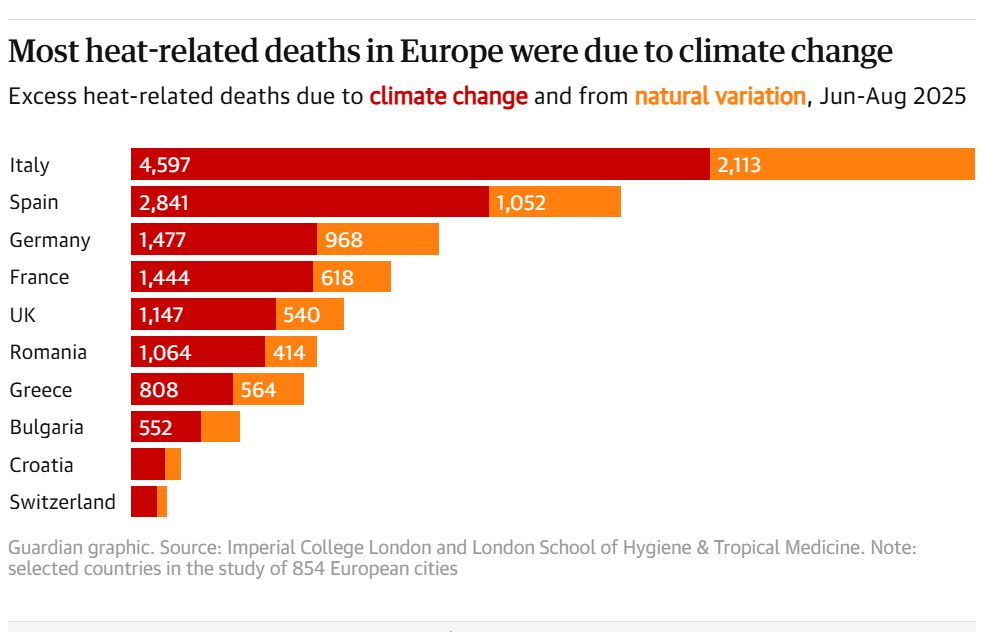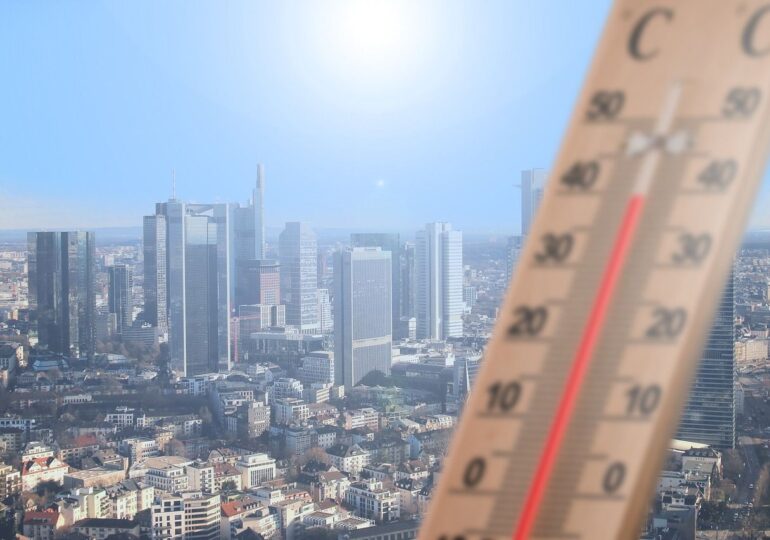A report by British researchers shows that 16,500 Europeans, out of over 24,000 who died due to heat this summer, lost their lives as a result of extreme temperatures caused by greenhouse gas emissions.
In practice, human-induced global warming caused two out of three heat-related deaths in Europe in the summer of 2025, as reported by The Guardian.
Italy, Spain, and Germany were the most affected, but Romania also recorded 1,064 deaths attributed to heatwaves caused by human activity.
European cities, on average 2.2°C hotter
The study, conducted by Imperial College London and London School of Hygiene & Tropical Medicine, analyzed data from 854 European cities from June to August 2025. The analysis shows that climate change has made major European cities, on average, 2.2 degrees Celsius warmer than they would have been in a scenario without emissions. This seemingly modest temperature increase has led to a dramatic toll.
"The causal chain between burning fossil fuels, rising temperatures, and high mortality is undeniable. If we had not continued to burn fossil fuels in recent decades, most of the approximately 24,400 people in Europe would not have died this summer," said Friederike Otto, a climatologist at Imperial College London and co-author of the report.
Most affected countries: Italy, Spain, and Germany
Italy recorded the highest number of heat-related deaths, with 4,597 victims, followed by Spain with 2,841 and Germany with 1,477.
Romania is also on the list of severely affected countries, with 1,064 deaths attributed to extreme heat.
The elderly were the most vulnerable: 85% of the victims were over 65 years old, and 41% were over 85 years old.

Invisible deaths in statistics
"Most heat-related deaths occur in homes, but also in hospitals, where people with pre-existing conditions reach their limits. However, heat is rarely mentioned on death certificates," explained Garyfallos Konstantinoudis, an epidemiologist at Imperial College London and co-author of the study.
This causes the real impact of heatwaves on public health to be often underestimated.
Some individual cases have attracted local media attention. Manuel Ariza Serrano, a 77-year-old former councilor from La Rambla, Spain, died in August after collapsing during a walk on a weekend when temperatures reached 45°C in the Córdoba region.
In Italy, Brahim Ait El Hajjam, a 47-year-old entrepreneur and father of four, died while pouring concrete at a school near Bologna, where temperatures were rising to 38°C. The tragedy occurred two days before a regional order banned outdoor construction work at lunchtime.
"He called my mother to tell her he was coming home to prepare lunch," recounted his 19-year-old son, Salah, to Italian television Antena 3. Unfortunately, he never made it home.
Although hot summers are becoming more frequent, experts warn that the lethal effects of heatwaves on public health are still downplayed. "The risk from heat is still underestimated, despite the obvious dangers," Konstantinoudis warned.

